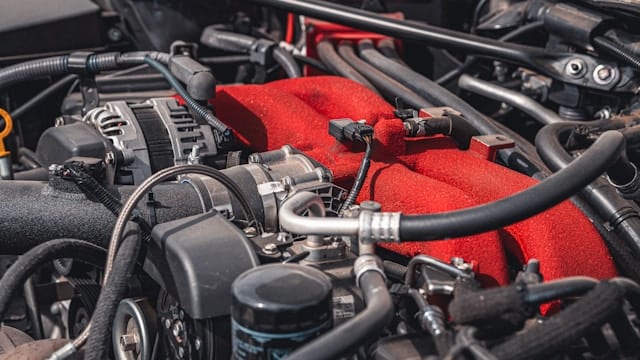How to Effectively Clean and Maintain Your Car’s Engine
 Keeping your car’s engine clean and well-maintained is essential for ensuring its longevity and optimal performance. Over time, engines can accumulate dirt, grease, and debris, which can lead to overheating, reduced efficiency, and potential mechanical failures. This article provides a comprehensive guide on how to effectively clean and maintain your car’s engine, safeguarding its functionality and extending its life.
Keeping your car’s engine clean and well-maintained is essential for ensuring its longevity and optimal performance. Over time, engines can accumulate dirt, grease, and debris, which can lead to overheating, reduced efficiency, and potential mechanical failures. This article provides a comprehensive guide on how to effectively clean and maintain your car’s engine, safeguarding its functionality and extending its life.
Benefits of a Clean Engine
A clean engine not only runs more efficiently but also allows for easier detection of leaks and wear. By keeping the engine free of grime, you ensure better heat dissipation, reducing the risk of overheating. Moreover, a clean engine compartment can significantly enhance the vehicle’s resale value, presenting a well-cared-for image to potential buyers.
Preparing for Engine Cleaning
Safety First
Before you start, ensure the engine is cool to prevent burns and damage to sensitive components. Disconnect the battery, starting with the negative terminal, to avoid electrical shorts.
Covering Sensitive Areas
Protect electrical components such as the alternator, distributor, and electronic control units with plastic bags or wrap. This precaution prevents water damage during the cleaning process.
Choosing the Right Cleaning Products
Engine Degreasers
Select a degreaser designed specifically for automotive engines. These products are formulated to break down oil, grease, and buildup without harming engine parts. Apply the degreaser according to the manufacturer’s instructions, typically spraying it on and allowing it to soak for a specified period.
Avoiding Harsh Chemicals
Steer clear of harsh chemicals that can degrade rubber hoses and seals. Opt for eco-friendly or mild degreasers that effectively clean without causing damage.
Cleaning Process
Rinsing
Gently rinse the engine compartment with a low-pressure water spray, avoiding direct contact with electrical components. This step removes loose dirt and prepares the surface for degreasing.
Scrubbing
For tough grime, use a soft brush to scrub the engine surfaces gently. Focus on areas with heavy buildup, taking care not to dislodge or damage any parts.
Final Rinse and Dry
After scrubbing, rinse the engine again with low-pressure water. Then, dry the engine compartment with compressed air or a soft cloth, ensuring no water is left on electrical components.
Regular Maintenance Checks
Oil and Fluid Levels
Regularly check and maintain the oil and other fluid levels. Clean oil is crucial for engine health, reducing wear and preventing overheating.
Inspecting Belts and Hoses
Examine belts and hoses for signs of wear or damage. Replace any that are cracked, frayed, or appear brittle to prevent breakdowns.
Air Filter Maintenance
Ensure the air filter is clean and free of debris. A clogged air filter can reduce engine efficiency and increase fuel consumption.
Conclusion
Effectively cleaning and maintaining your car’s engine is a key aspect of overall vehicle care. By following these steps, you can enhance your engine’s performance, prevent mechanical issues, and extend its lifespan. Regular cleaning not only keeps your engine running smoothly but also makes routine maintenance checks easier, allowing for early detection and resolution of potential problems. Remember, a clean engine is a happy engine, contributing to a reliable and efficient driving experience.
